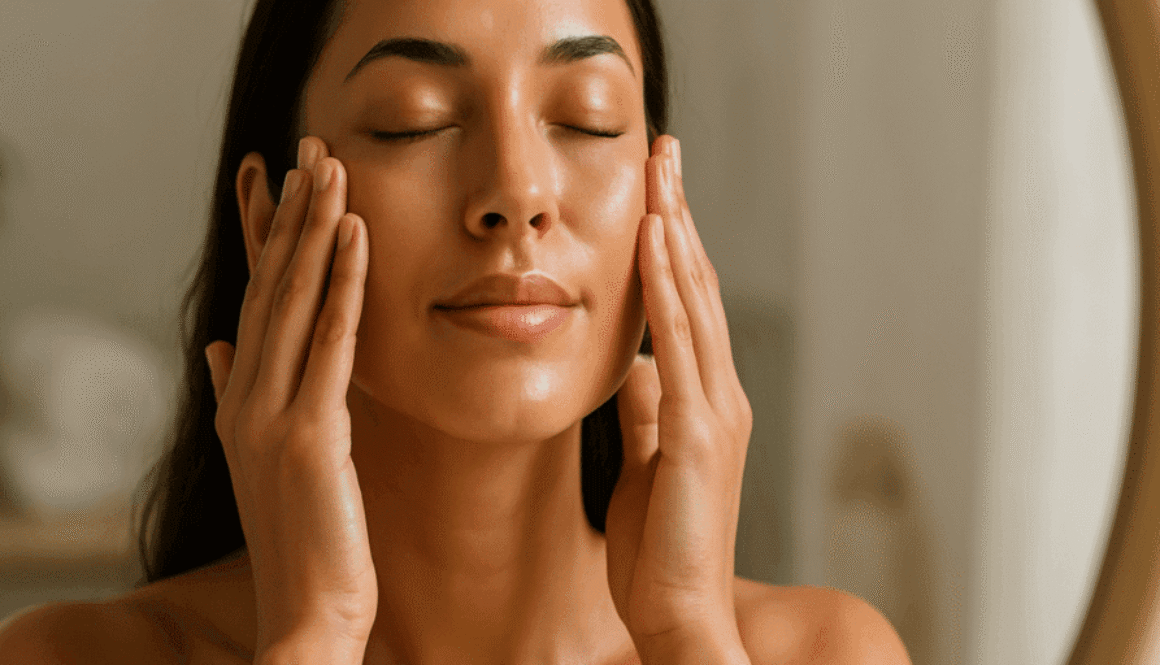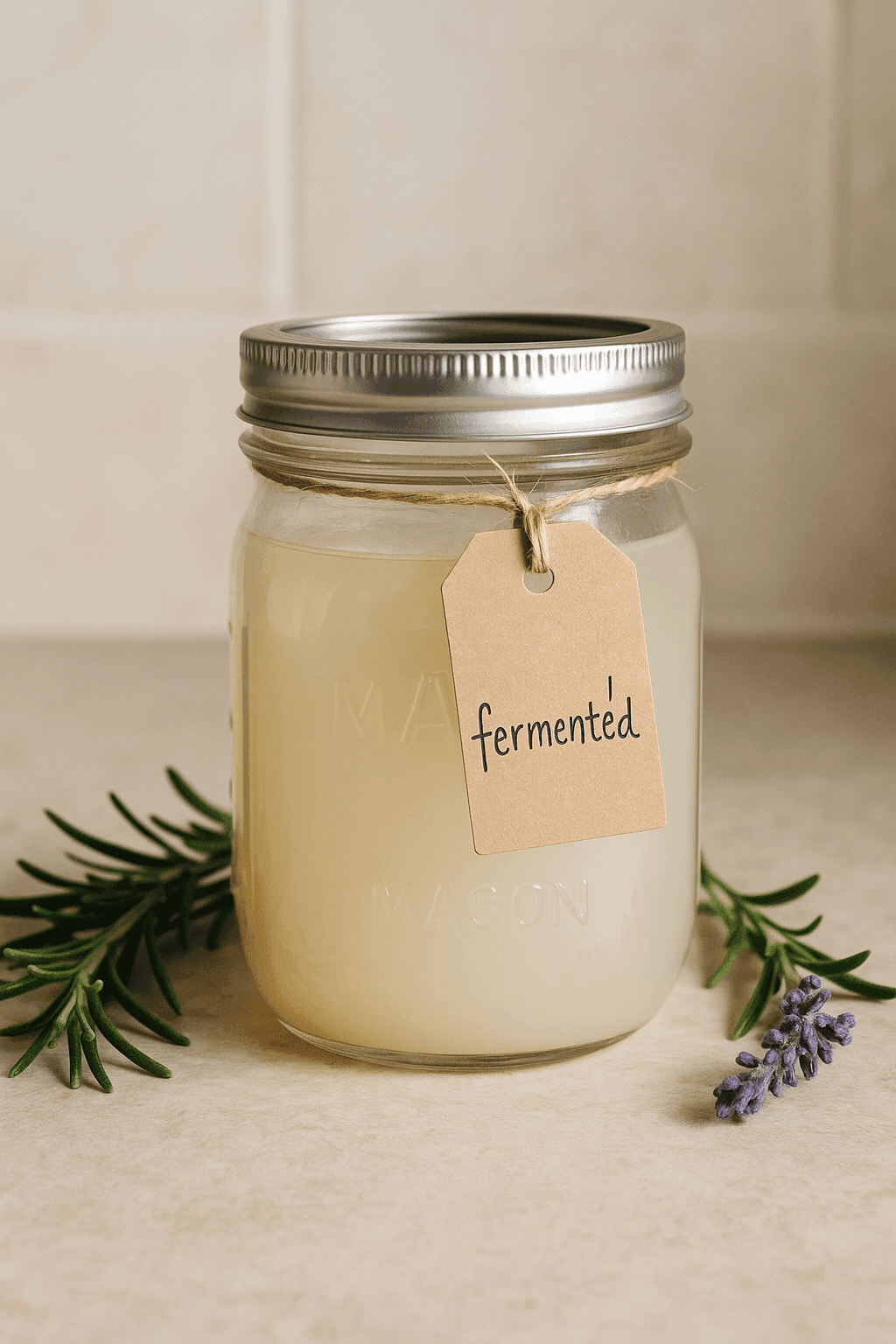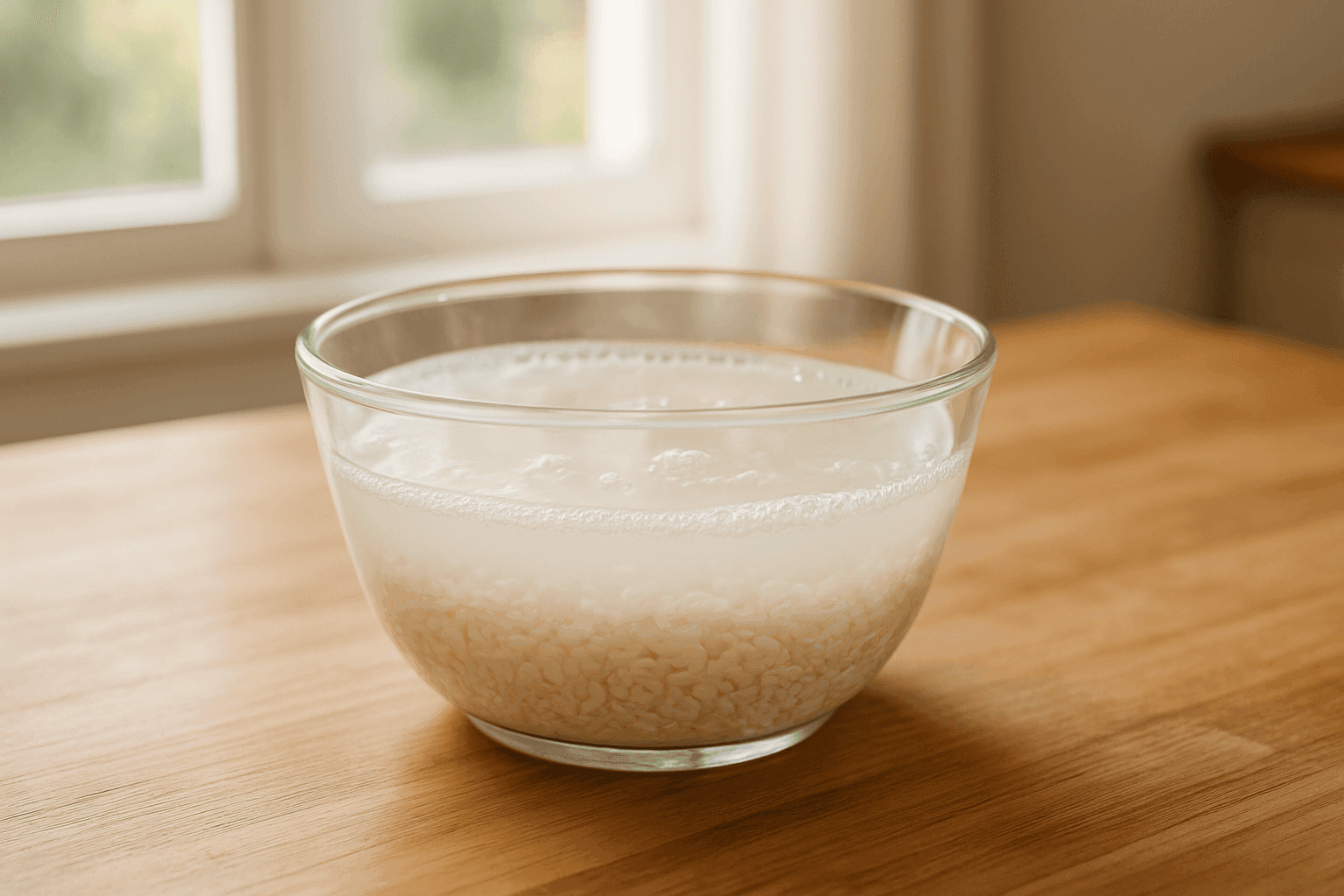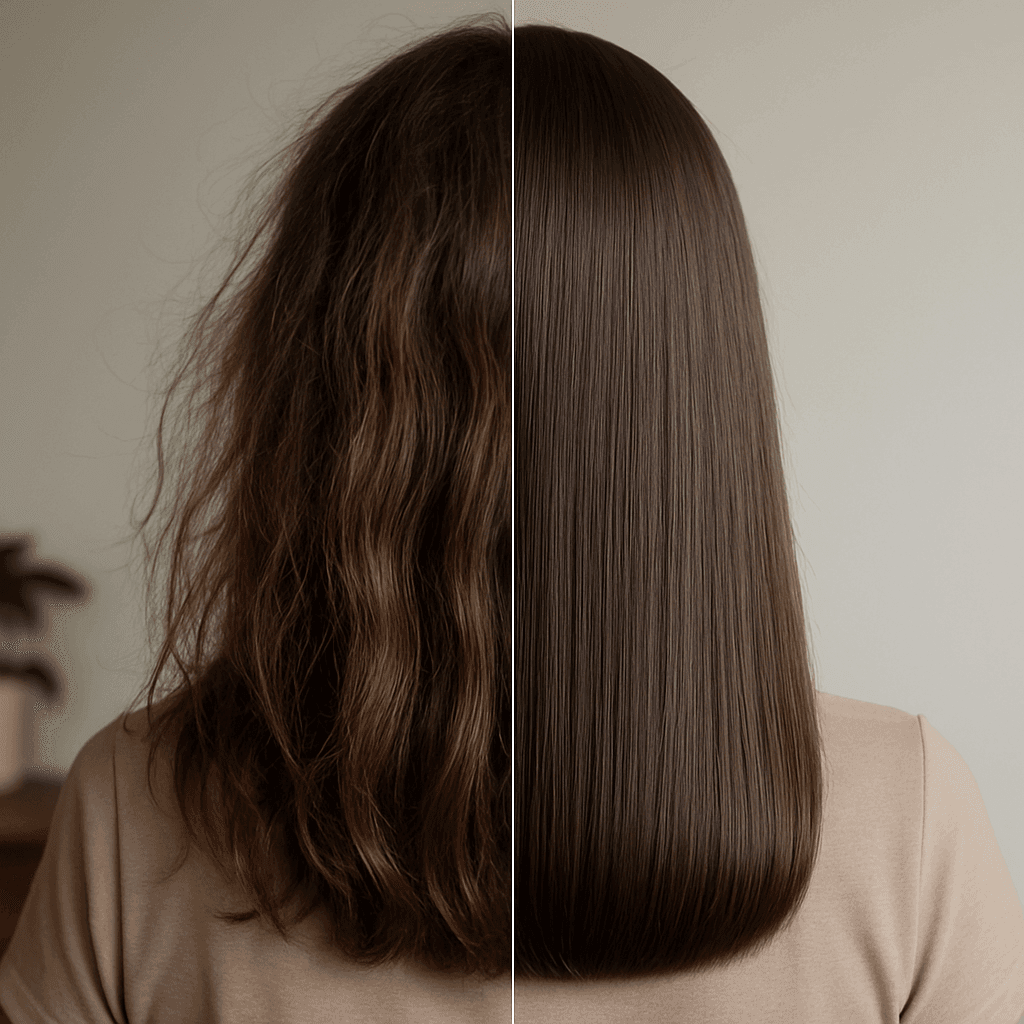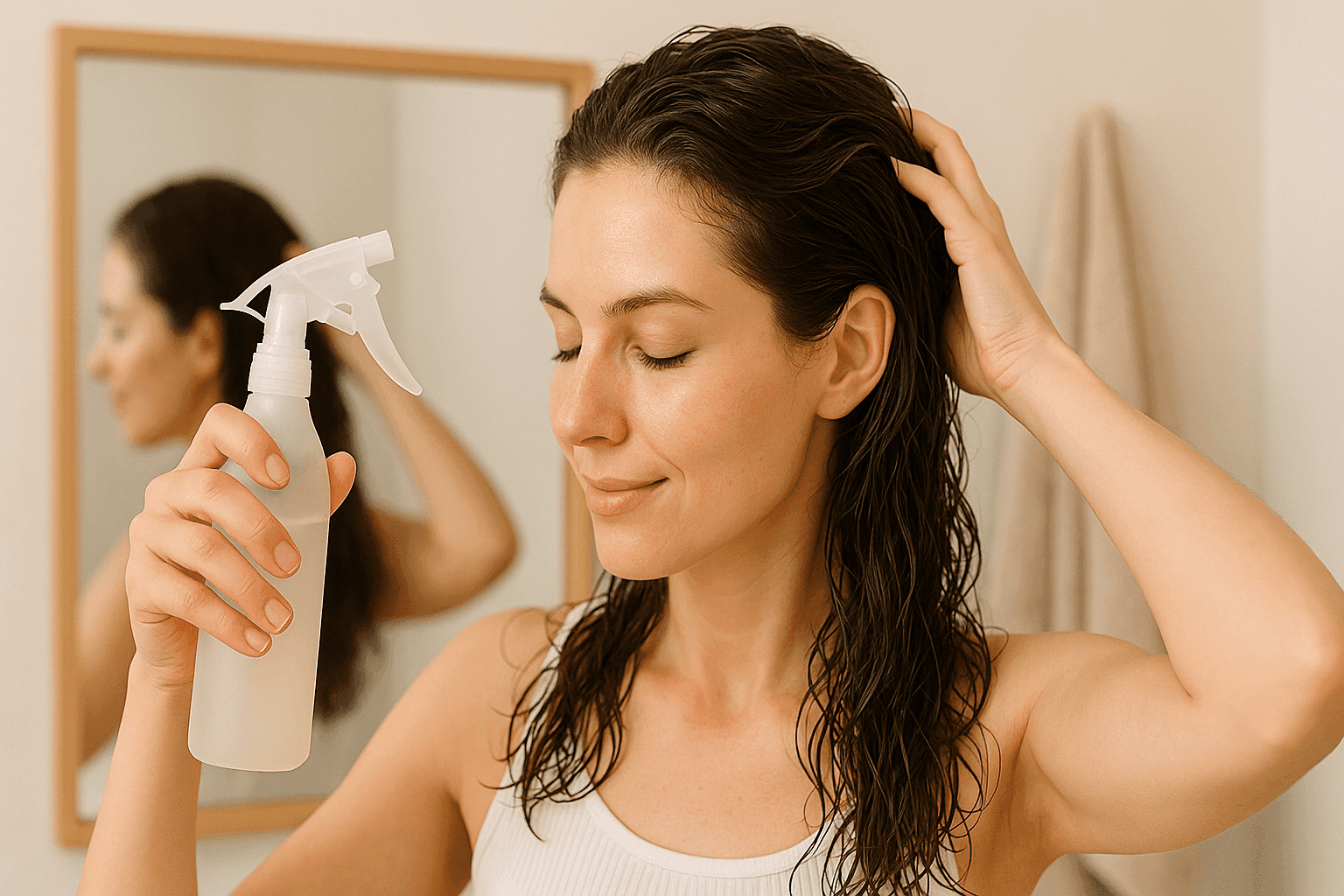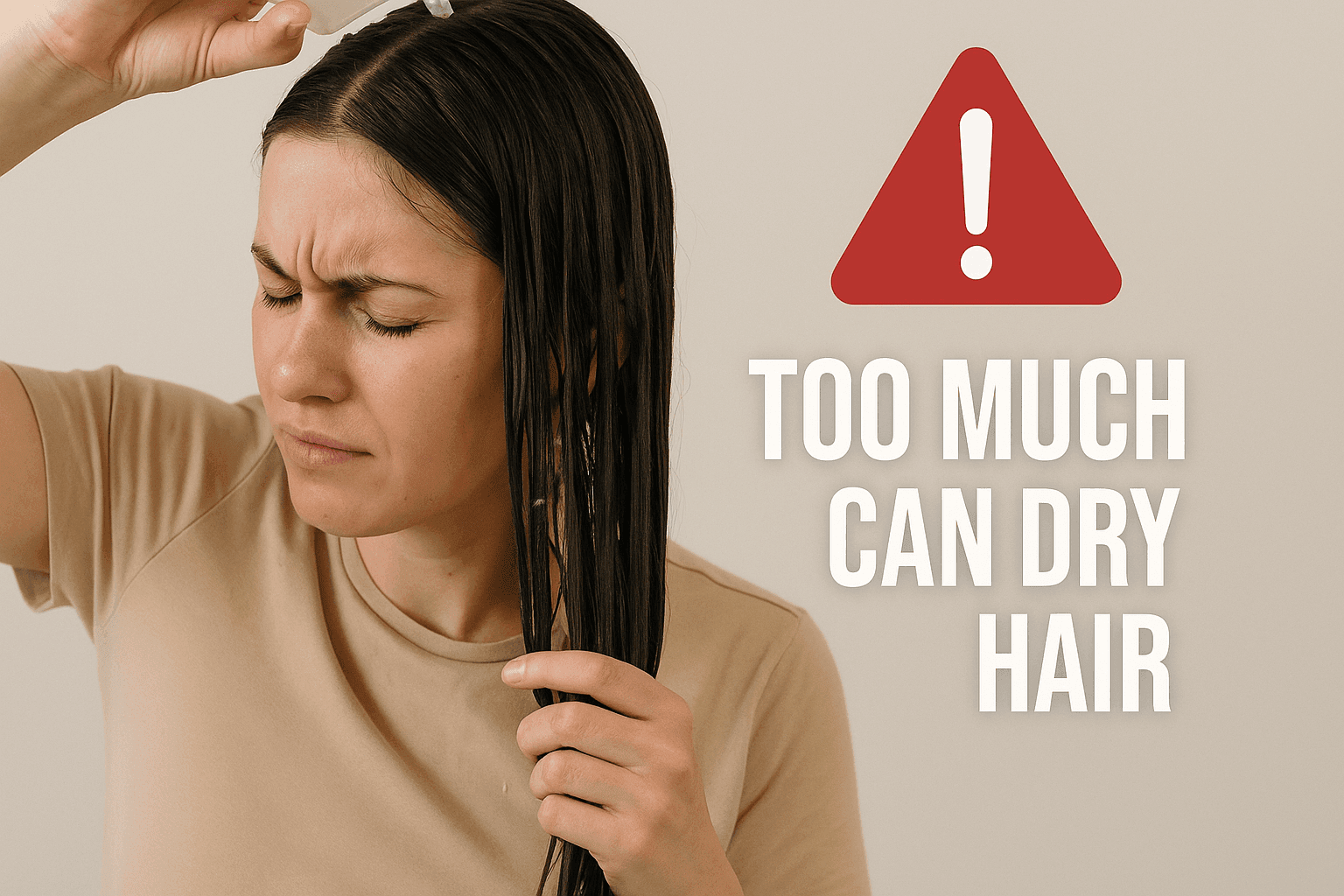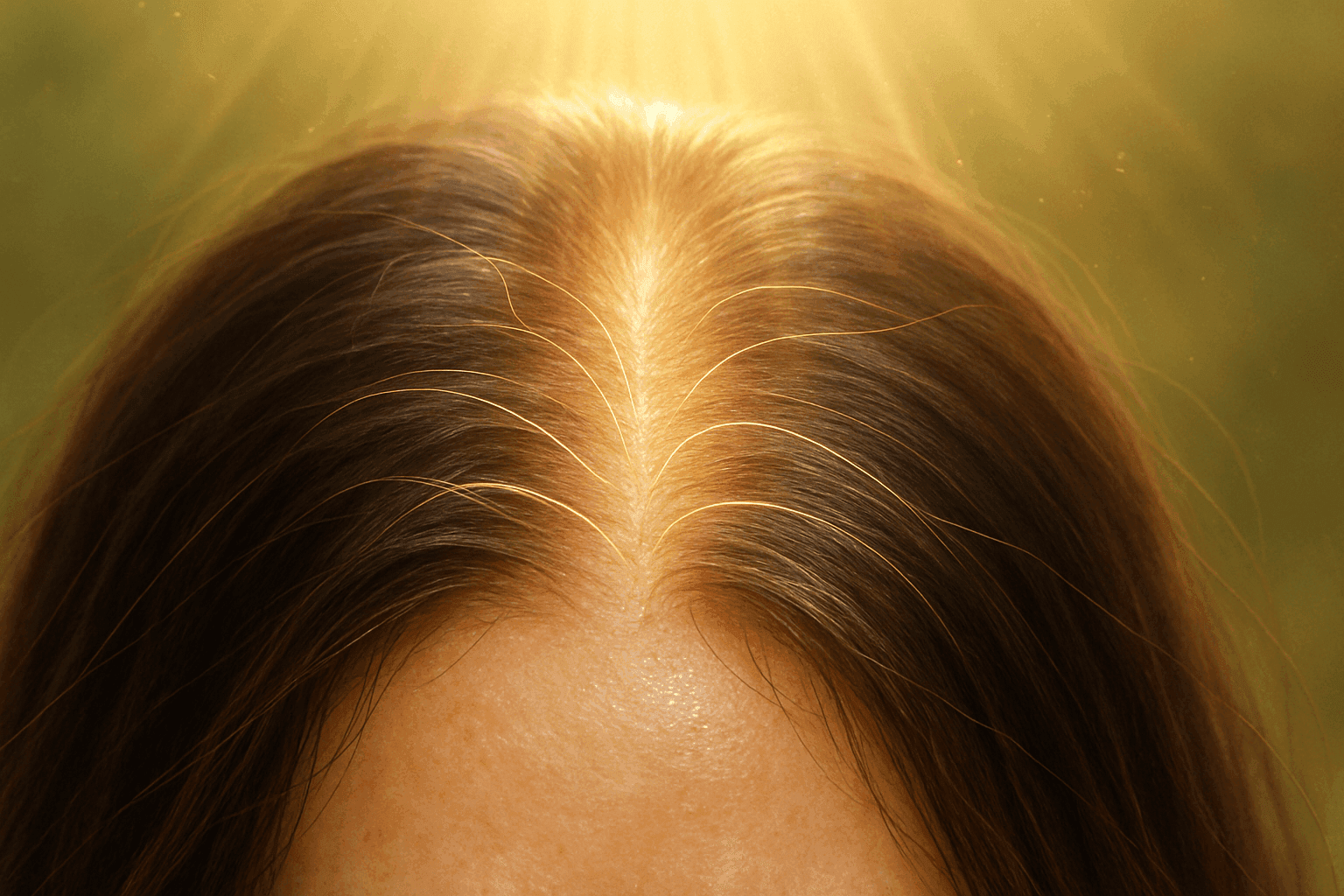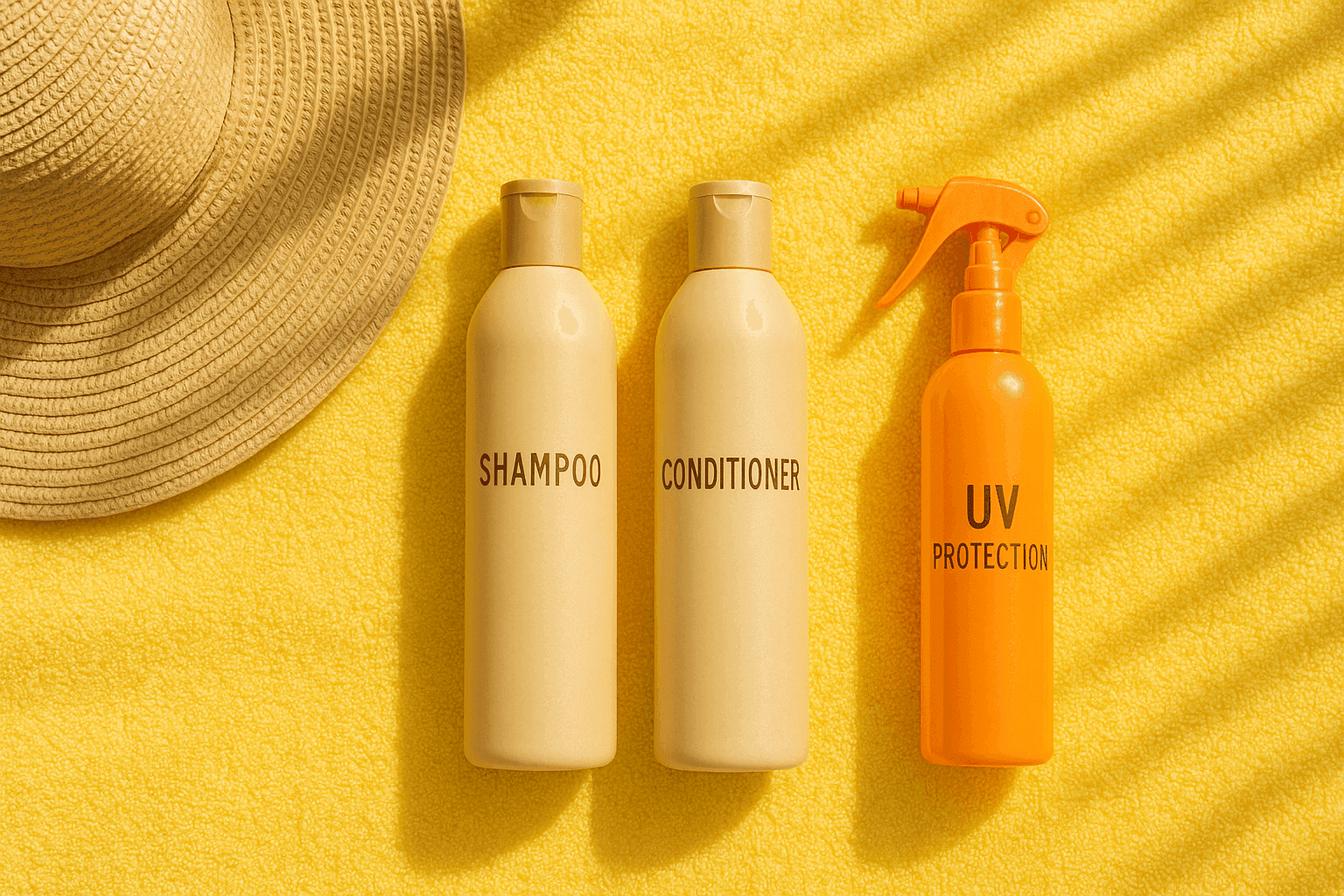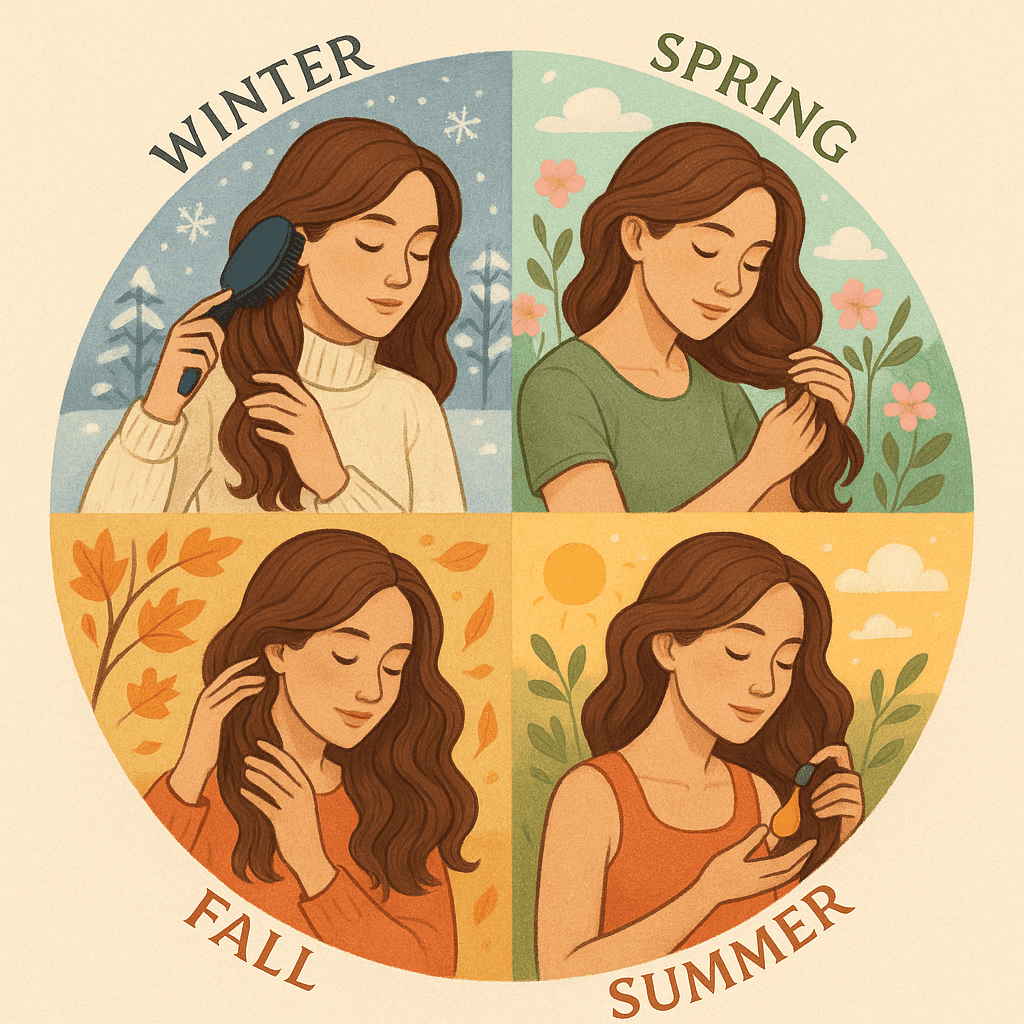Unlocking the Facial Massage Benefits: What You Need to Know
Imagine looking in the mirror and wishing your skin had that radiant glow or that your face felt less puffy and tense. It’s a common feeling, and many of us think that only pricey creams or fancy spa treatments can make a difference. But here’s the good news: there’s a simple, natural remedy right at your fingertips—facial massage. Recently, facial massage has taken the beauty world by storm; the global market for facial massagers was around $1.79 billion in 2023 and is growing at an impressive rate of about 10.7% each year. Influencers on TikTok and Instagram are constantly showcasing their jade roller and gua sha routines, turning at-home facial massage into a must-have in skincare regimens. In this article, we’ll dive into how facial massage works and uncover its numerous benefits—from boosting circulation and firming up the skin to reducing stress and improving sleep quality.
How Facial Massage Works
Facial massage involves gently working on the face and neck using your fingertips or various tools. Some popular techniques include tapping, kneading, pinching, and making upward strokes—always moving outward and upward to lift the skin and prevent sagging.
You can easily perform facial massage with just your hands. Use your fingers to create small circular motions on your temples, forehead, and cheeks, or gently pinch along your jawline and brow. Many people like to use facial oils or serums to help their fingers glide smoothly.
Here are some popular facial massage tools:
- Jade or quartz rollers: These help absorb skincare products and provide a refreshing cooling effect.
- Gua sha stones: Perfect for gliding along the face to sculpt and reduce puffiness.
- Microcurrent or vibrating devices: These stimulate blood flow and tone facial muscles.
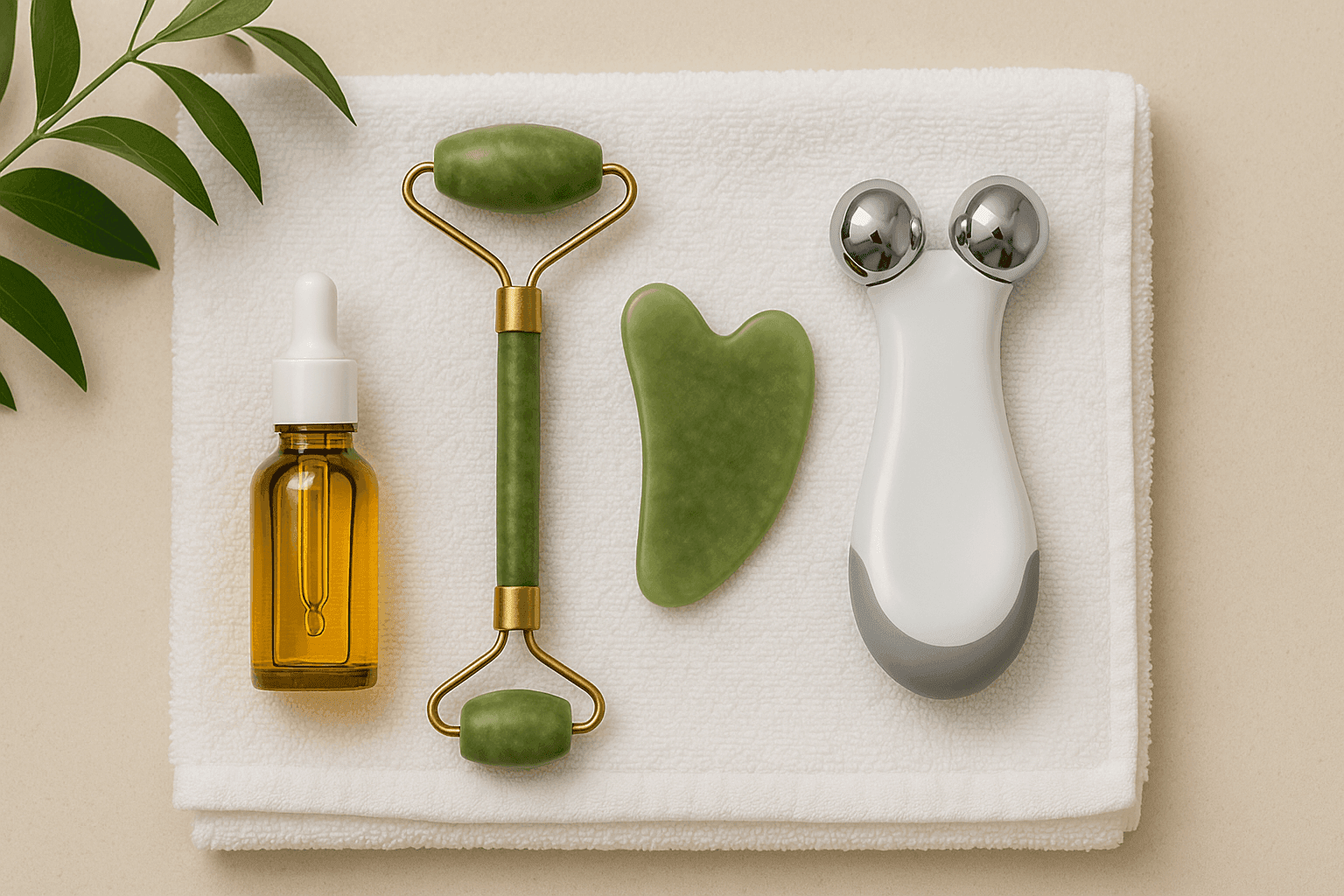
Facial massage enhances blood circulation and lymphatic drainage, ensuring that nutrients reach your skin while flushing out toxins and excess fluid. It can help diminish puffiness, relieve tension (especially around the jaw and eyes), and leave your skin looking revitalized. Over time, it may also help tone your facial muscles for a firmer, more youthful appearance.
Benefits of Facial Massage
Physical Benefits of Facial Massage
Making facial massage a regular habit offers several physical benefits:
- Boosts Blood Circulation: Just a quick five-minute massage can really get the blood flowing, which means more oxygen and nutrients reach your skin. The result? A healthier, firmer appearance.
- Reduces Puffiness (Lymphatic Drainage): By helping to drain away excess fluid, massage can reduce puffiness and create a more lifted look. Research shows that after just two weeks of daily massage, facial tissues can tighten and cheeks can look noticeably lifted.
- Firms Facial Muscles: Think of it as a workout for your face! Regular massage tones those facial muscles and supports the SMAS layer, leading to a firmer, more contoured look over time.
- Softens Fine Lines and Wrinkles: Massage encourages the production of collagen and elastin, which can gradually smooth out fine lines and enhance your skin’s texture.
- Improves Skin Elasticity: When paired with your favorite skincare products, facial massage can boost elasticity and help keep your skin looking youthful and resilient.
Skin Health Benefits of Facial Massage
Facial massage also improves overall skin health:
- Natural Glow: The increased blood flow gives your skin a healthy, radiant glow. Many people notice a brighter, more luminous complexion after regular sessions.
- Clears Toxins & Prevents Breakouts: Improved lymph flow helps flush out toxins and reduce mild inflammation, which can help keep breakouts at bay.
- Enhances Product Absorption: Massaging in serums or moisturizers can really amp up their absorption and effectiveness.
- Soothes Irritation: A gentle massage can calm redness and sensitivity by boosting micro-circulation. (Just be sure to avoid it on broken or highly irritated skin.)
- Evens Skin Tone: Better blood flow helps balance pigmentation and reduce blotchiness, leading to a more even complexion.
Mental & Emotional Benefits
Facial massage isn’t just for your skin – it also improves your mental well-being:
- Reduces Stress: A gentle massage can trigger your body’s relaxation response, helping to lower stress and anxiety levels. One study even showed that just 10 minutes of nightly massage can lead to better sleep and an improved mood.
- Relieves Tension Headaches: Focusing on areas like your temples, forehead, and jaw can help release built-up tension, providing relief from sinus or TMJ-related headaches.
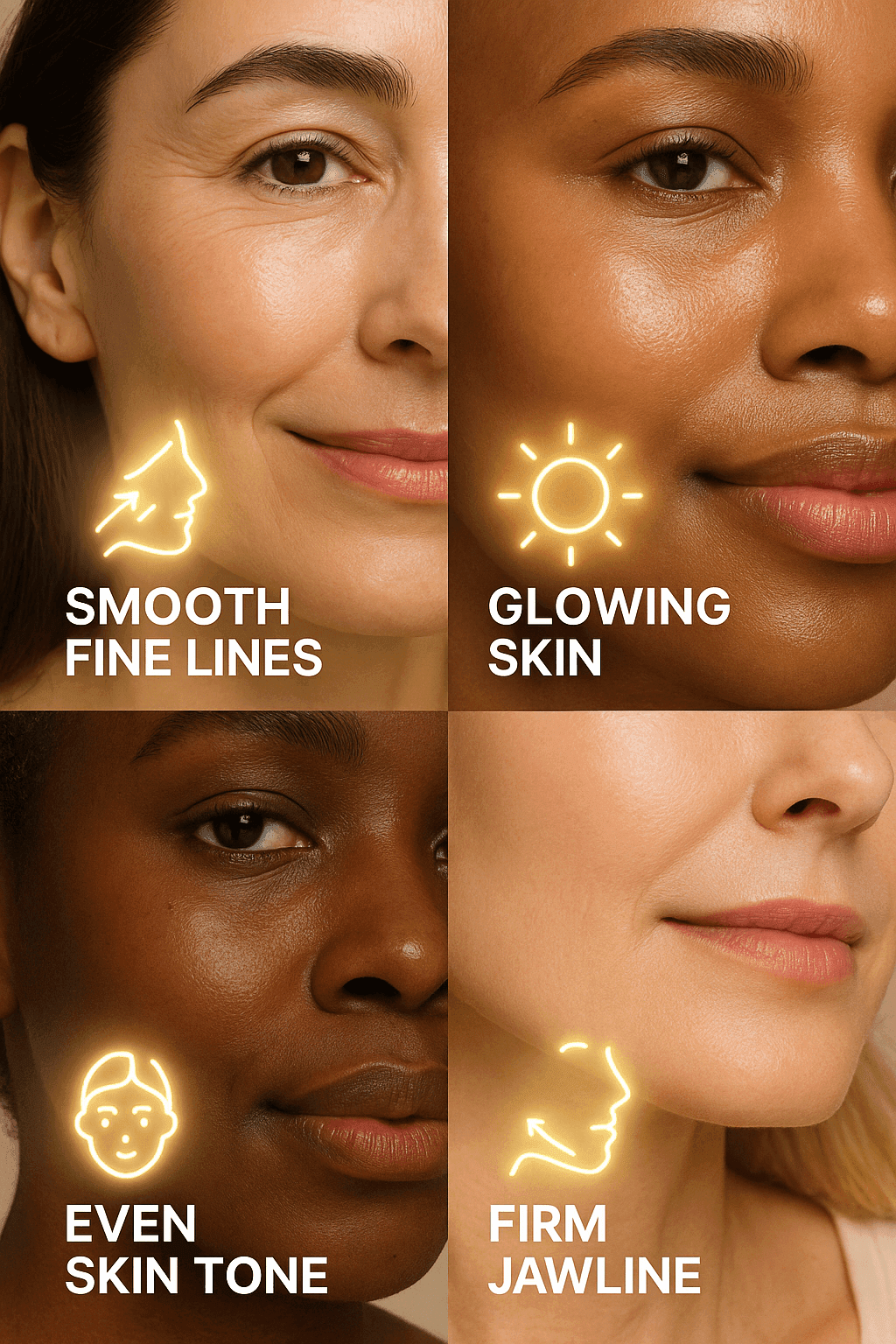
- Improves Sleep: Incorporating a nightly facial massage into your routine can enhance your sleep quality, making it a lovely addition to your bedtime
- Lifts Mood: The soothing touch of a massage can increase feel-good hormones like oxytocin and endorphins, leaving you feeling more relaxed, centered, and happy.
✅ Who Should Try Facial Massage
Facial massage is safe for most people, but here are some key guidelines:
👤 Best Skin Types
Everyone can benefit from facial massage—whether you have normal, dry, oily, or combination skin:
- It’s especially great for mature skin, helping to reduce sagging and improve tone.
- Younger skin can also enjoy the benefits, keeping it clear and balanced.
- Oily skin can handle massage too—just opt for non-comedogenic oils.
- If you have dry or eczema-prone skin, use gentle strokes and nourishing oils, but don’t overdo it.
👶 Age Groups
- 20s–30s: Perfect for stress relief and early anti-aging benefits.
- 40s and beyond: Helps with skin tightening and reducing wrinkles.
- Teens: Can be a great way to relax and enhance complexion.
⚠️ When to Avoid
It’s best to skip facial massage if you have:
- Open wounds, sunburn, or active acne.
- Cold sores, styes, or any skin infections.
- Rosacea or eczema flare-ups (always check with a dermatologist first).
- Recent cosmetic injections (wait 24–48 hours).
- Post-chemical peels or facials (give your skin time to recover).
- Taking blood-thinning medications (consult your doctor first).
👉 Overall, facial massage is low-risk and widely recommended as part of a skincare routine.

Also read: https://truenaturecare.com/homemade-face-masks-for-oily-skin-using-kitchen-ingredients/
🧴 How to Get Started with Facial Massage
Facial massage is super simple to do at home—even if you’re just starting out!
Prep Your Skin
- Wash your hands and face
- Apply a few drops of facial oil or serum (like jojoba, almond, or rosehip)
- Oils help your fingers glide smoothly and nourish your skin
Basic Massage Steps
Use gentle upward and outward motions—avoid tugging or pressing too hard. Here’s a straightforward 5-step routine:
👇 Neck to Chin: Sweep both hands from the base of your neck up to your jawline to help open those lymph nodes
👉 Chin to Cheeks: Gently push upward along your jaw toward your ears
😊 Cheeks to Temples: Lightly knead your cheeks upward and outward
👁 Under Eyes & Brows: Use your ring fingers to glide from the inner corners of your eyes to your temples
🤲 Forehead: Stroke or make small circles from between your brows out to your hairline
Tip: Be gentle, especially around your eyes.
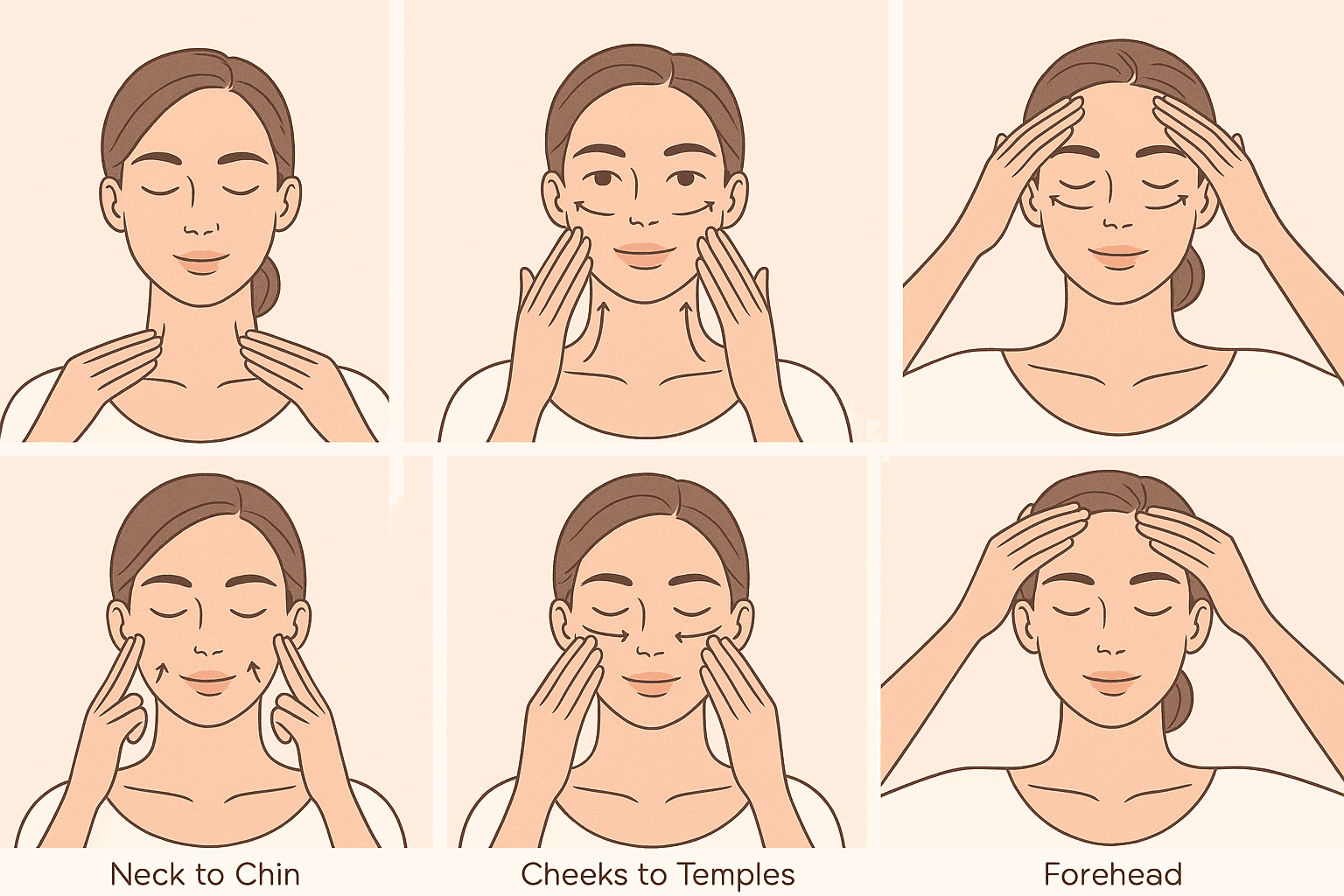
Tools You Can Use
While you don’t need any tools, they can definitely enhance your experience!
- 🧼 Jade Roller: Use it after applying serum to help reduce puffiness
- 🪨 Gua Sha: Gently scrape along the contours of your face
- ⚡ Microcurrent Devices: Just follow the brand’s instructions with conductive gel
- ✋ Your Hands: Still the best (and free) option!
How Often to Do It
- Aim for 3–5 minutes per session
- For the best results, do it daily, or 2–3 times a week if you’re short on time
- Ideal times: during your skincare routine or while winding down at night
Protect Your Skin
- Never press too hard or pull down
- It should feel soothing, not painful
- If you feel any irritation, ease up on the pressure
- As experts say: “Gentle is effective—there’s no need to go hard!”
🧖♀️ Professional Facial Massage vs. DIY
When it comes to facial massage, you’ve got two main options—doing it yourself at home or treating yourself to a professional session. Each has its own perks:
💆♀️ Professional Facial Massage
- ✨ Performed by trained aestheticians at spas or clinics
- ⏱️ Typically lasts 45–60 minutes
- 🧴 Uses high-quality products: serums, masks, essential oils
- 🧪 May include advanced tools: microcurrent, LED therapy, vacuum massagers
- 🧘 You get a relaxing, expertly guided experience
- ✅ Great for targeting deep tension, lymphatic drainage, and facial muscle tone
- 💸 Cost: Around $50–$150 per session
- 📅 Requires scheduling and ongoing appointments
Pros: Faster, more visible results. Great for deep rejuvenation.
Cons: Higher cost, less accessible.
🪞 DIY Facial Massage at Home
- 🆓 Completely free once you have oil or a tool
- 🛋️ Super convenient — do it anytime (in bed, watching TV, etc.)
- 🔁 Makes for a soothing daily habit
- 🕒 Sessions can be short (3–5 mins) or longer, depending on your schedule
- 🌱 Best for maintaining skin health and supporting long-term glow
Pros: Affordable, easy to maintain, flexible.
Cons: Results are slower and more subtle. No access to professional tools.
💡 Best of both worlds: Many people combine both — professional facials every few months and regular DIY sessions for upkeep.
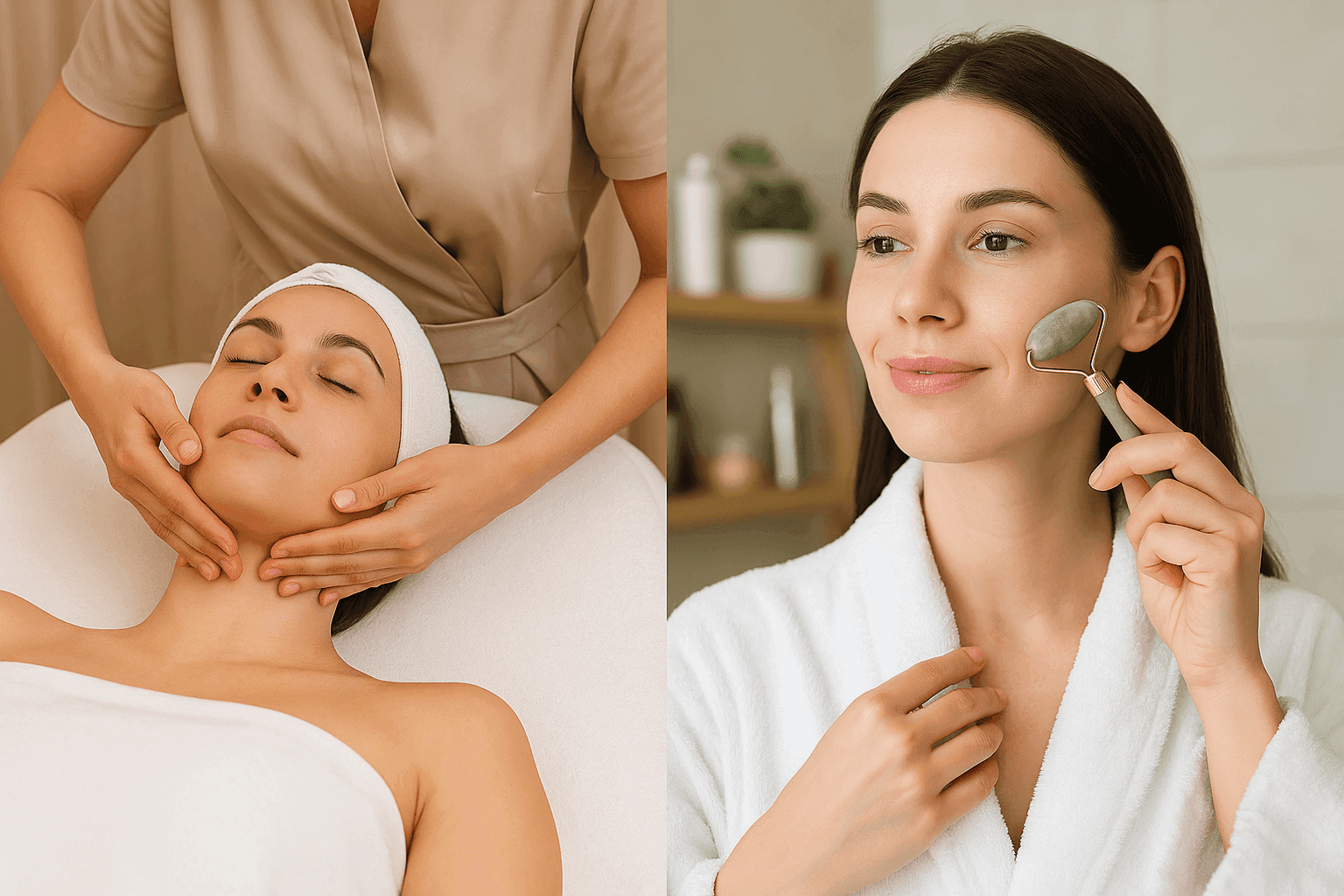
FAQs
⏳ How long does it take to see results from facial massage?
You might notice a lovely post-massage glow or reduced puffiness right away, but for those long-lasting benefits—like firmer skin or fewer fine lines—you’ll want to make facial massage a regular part of your routine.
📆 Typically, you can expect to see results in about 4 to 6 weeks if you practice consistently (aim for at least 3 to 5 times a week).
⚠️ Can facial massage cause skin damage?
Only if you’re not careful!
- ❌ Avoid pressing too hard, as it can break capillaries.
- ✅ Always use oil or serum to prevent tugging on your skin.
- 🚫 Steer clear of massaging over active acne, wounds, or inflamed areas.
- 🛑 If you feel pain or notice irritation, it’s best to stop.
A good rule of thumb: If it feels nice, you’re on the right track!
🤰 Is facial massage safe during pregnancy?
Absolutely! Gentle facial massage is safe and can even be quite relaxing during pregnancy.
- 🧴 Just be cautious with essential oils that aren’t recommended for use during pregnancy.
- 💆 Stick to light strokes with your fingers.
- 🩺 If you have a high-risk pregnancy, it’s wise to check with your doctor first.
🧬 How does facial massage compare with other anti-aging treatments?
Facial massage is a natural, non-invasive option.
- ✅ It helps soften fine lines and boosts circulation.
- ❌ Don’t expect instant or dramatic results like you would with Botox or fillers.
- 🧖♂️ It’s best used as a maintenance or preventive measure alongside other treatments.
Many dermatologists recommend combining massage with products and procedures for the best results.
🧪 Can facial massage help with acne scars?
Yes, but only certain types of scars.
- ✅ It can improve newer, superficial, or healing scars by enhancing blood flow.
- ❌ It won’t eliminate deep scar tissue.
- 🧼 Never massage over active acne, as it can spread bacteria.
- 💆 Once the acne has healed, gentle massage with oil may help flatten raised scars over time.
⏳ Remember, scar improvement takes time. For deeper scars, you might want to look into professional treatments like micro needling or silicone gel sheets.
Conclusion
Facial massage is an unexpectedly powerful yet simple self-care practice. By gently working on your facial muscles and skin, you can:
- Boost circulation and lymph flow, which helps wake up your skin and reduce puffiness.
- Tone and lift your face over time, as supported by CT studies and small trials.
- Smooth out fine lines and enhance elasticity, especially when paired with a good skincare routine.
- Give your skin a natural glow, balance your complexion, and enhance the effectiveness of your creams.
- Release stress and tension, easing headaches and improving sleep by promoting relaxation.
Whether you use your hands or a jade roller, dedicating just a few minutes each day (or several times a week) can lead to both radiant skin and a calmer mind. Facial massage is not only budget-friendly but also versatile – it can feel just as soothing as a mini-facial every day. As one market report highlights, more people are turning to these “non-invasive, at-home beauty solutions.”
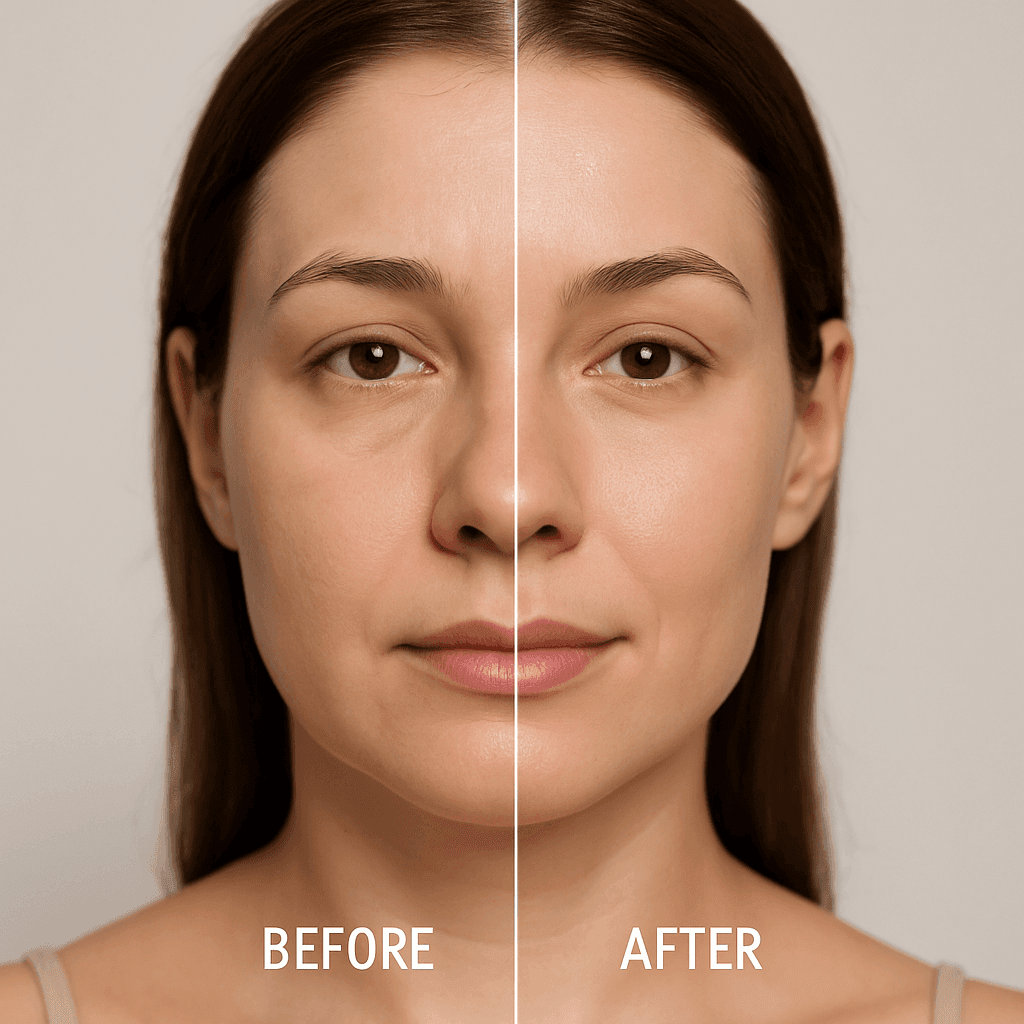
So why not add a gentle facial massage to your routine? Your skin (and spirit) might just reward you with a little extra glow and relaxation. Just be sure to apply the right pressure for your skin type and the right frequency to reap the benefits. With consistent practice, you’ll discover the surprising advantages of facial massage and make this simple technique a vital part of your daily self-care.
